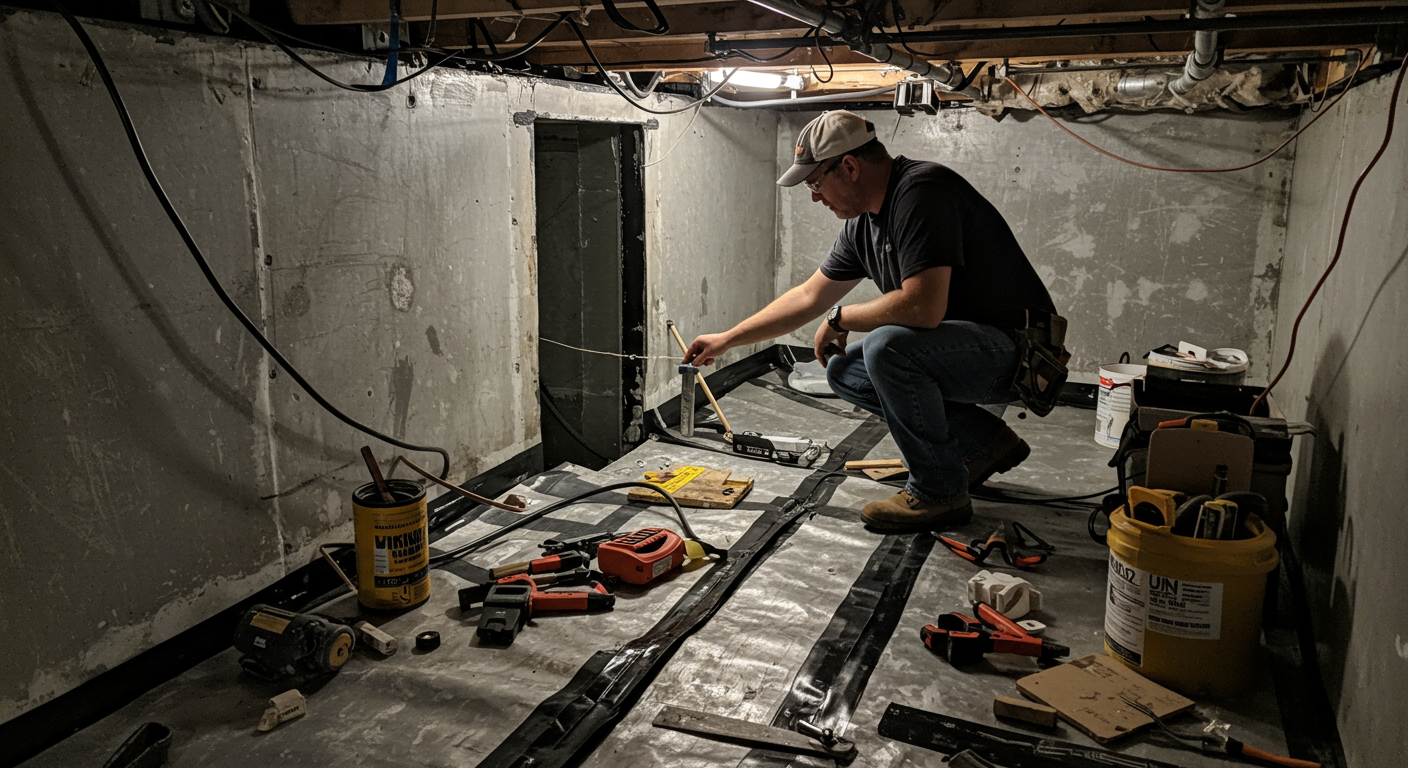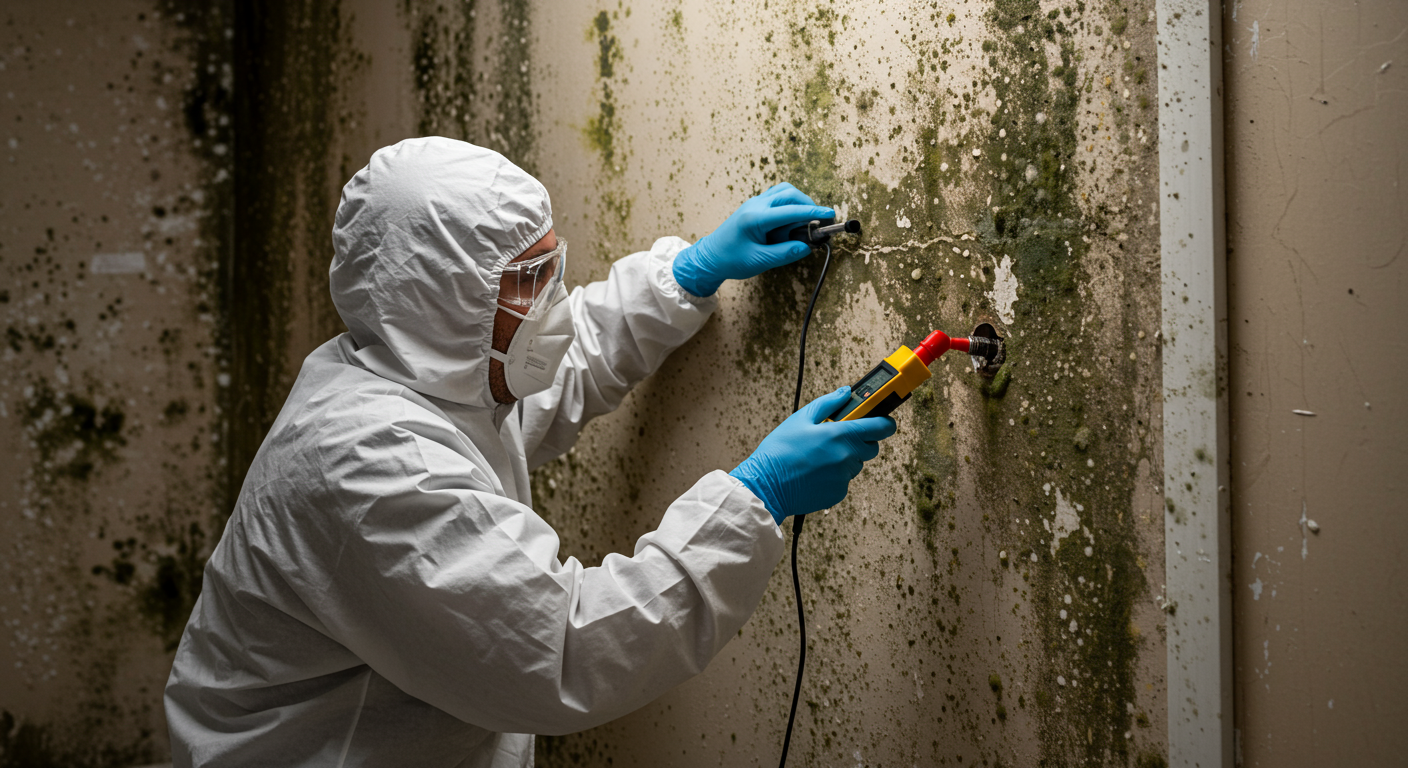Crawl space encapsulation has gained popularity among homeowners in Richmond, VA, as a solution to moisture problems and energy efficiency. While it offers numerous benefits, it’s essential to understand the potential downsides before making a decision. This article explores the negatives of crawl space encapsulation, helping you make an informed choice for your home.
What is Crawl Space Encapsulation?
Definition and Purpose
Crawl space encapsulation is a process that involves sealing the crawl space beneath your home to protect it from moisture, pests, and temperature fluctuations. This is achieved by covering the walls and floor with a durable vapor barrier, sealing vents, and sometimes installing a dehumidifier. The primary goal is to create a controlled environment that improves indoor air quality and prevents structural damage caused by moisture.
The Encapsulation Process Explained
The encapsulation process begins with cleaning the crawl space, removing debris, and addressing any existing issues like mold or standing water. Next, a heavy-duty polyethylene barrier is installed to cover the floors and walls, followed by sealing all vents and openings. In some cases, a dehumidifier is added to maintain optimal humidity levels. While this process can significantly improve your home’s condition, it’s not without its challenges.
Key Negatives of Crawl Space Encapsulation
Improper Installation Risks
One of the most significant risks of crawl space encapsulation is improper installation. If the vapor barrier is not sealed correctly or inferior materials are used, it can lead to gaps and leaks. These issues can allow moisture to seep in, negating the benefits of encapsulation and potentially causing mold growth. Additionally, poor installation can compromise the structural integrity of your home, leading to costly repairs.

Cost Considerations
Crawl space encapsulation is a substantial investment, with costs ranging from $5,000 to $15,000 or more, depending on the size of the space and the materials used. Beyond the initial expense, homeowners must also account for ongoing maintenance, such as replacing the vapor barrier or servicing the dehumidifier. For many, the financial burden can outweigh the benefits, especially if the encapsulation is not done correctly.
Potential for Internal Moisture Issues
While encapsulation is designed to prevent moisture from entering the crawl space, it can sometimes trap humidity inside if not properly ventilated. This trapped moisture can lead to condensation, mold growth, and even wood rot, posing a risk to your home’s structural integrity. Regular maintenance and monitoring are crucial to avoid these issues, but they add to the overall cost and effort required.
How to Avoid Common Pitfalls
Choosing a Reputable Contractor
Selecting a qualified and experienced contractor is critical to the success of your crawl space encapsulation project. Look for professionals with a proven track record, positive customer reviews, and certifications in moisture control and encapsulation. A reputable contractor will conduct a thorough inspection of your crawl space, identify potential issues, and recommend the best solutions tailored to your home’s needs.
Preparing Your Crawl Space
Before encapsulation, it’s essential to address any existing problems in your crawl space. This includes repairing leaks, removing standing water, and treating mold. Proper preparation ensures that the encapsulation process is effective and prevents future issues. Consider consulting experts in water damage restoration to ensure your crawl space is ready for encapsulation. Learn more about water damage restoration services in Richmond, VA.
Conclusion: Weighing the Pros and Cons
Making an Informed Decision
Crawl space encapsulation can offer significant benefits, but it’s not without its drawbacks. Understanding the potential negatives, such as improper installation, high costs, and internal moisture issues, is crucial for making an informed decision. By choosing a reputable contractor and preparing your crawl space thoroughly, you can minimize risks and maximize the benefits of encapsulation. Ultimately, the decision should align with your home’s specific needs and your budget.
For more information on maintaining a healthy home environment, consider exploring mold remediation services in Richmond, VA or consulting experts in crawl space repair.


